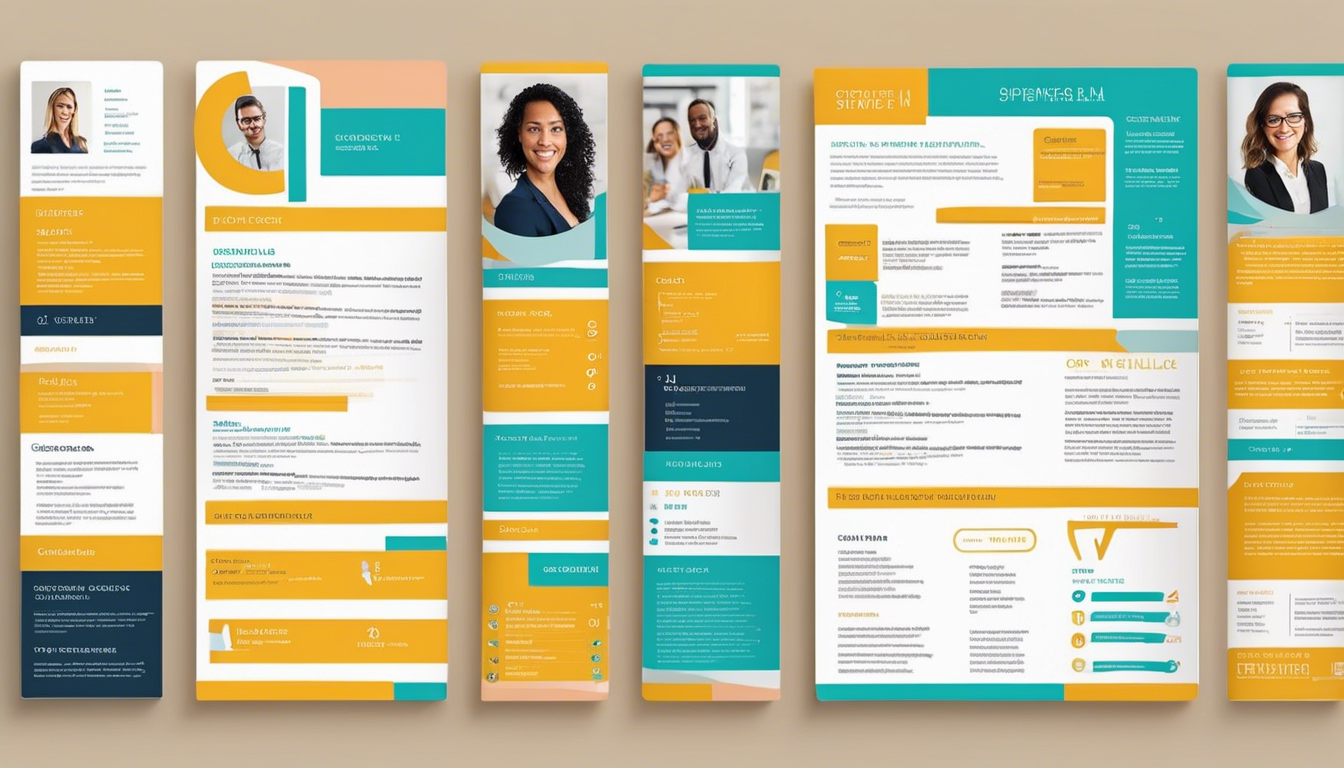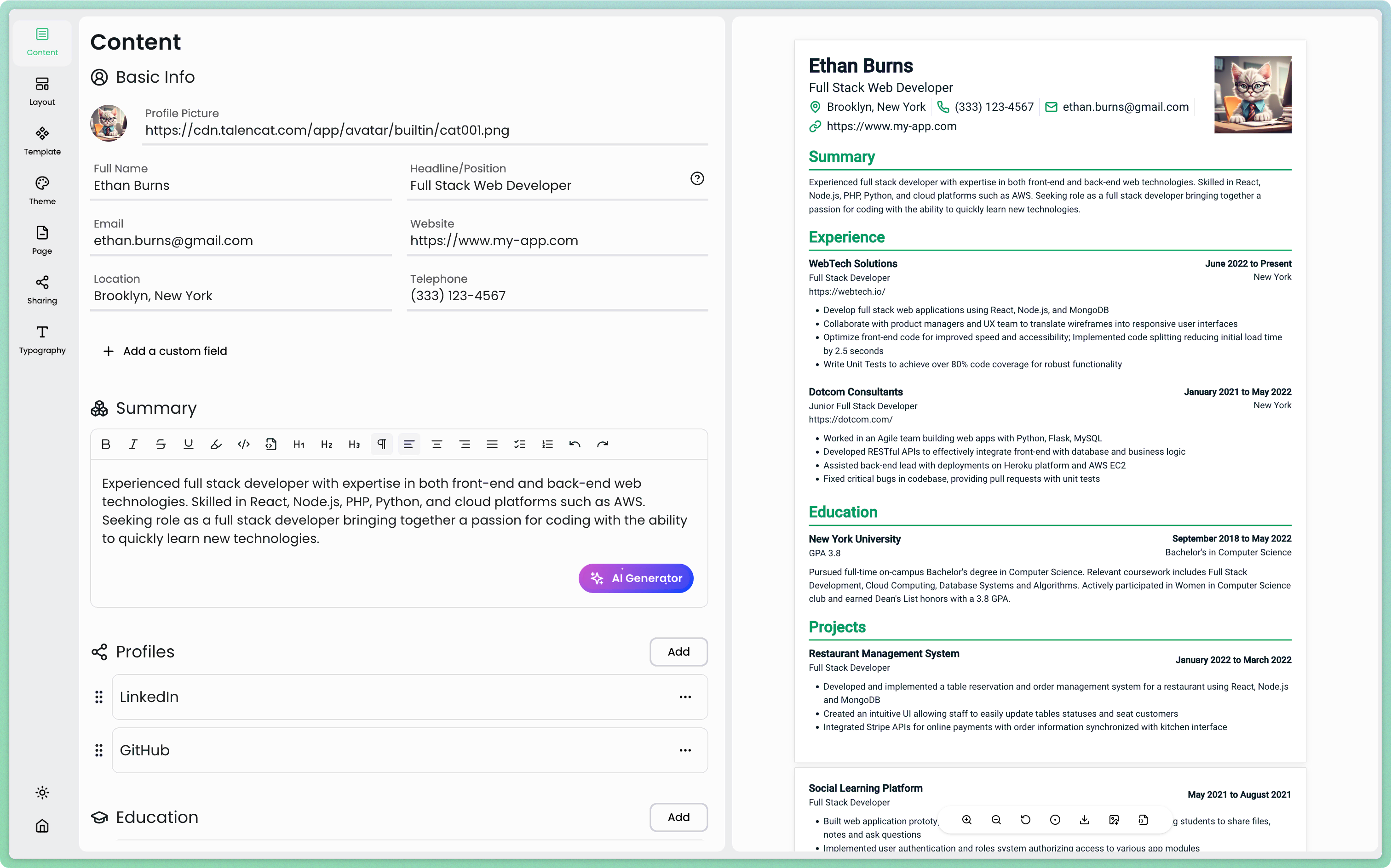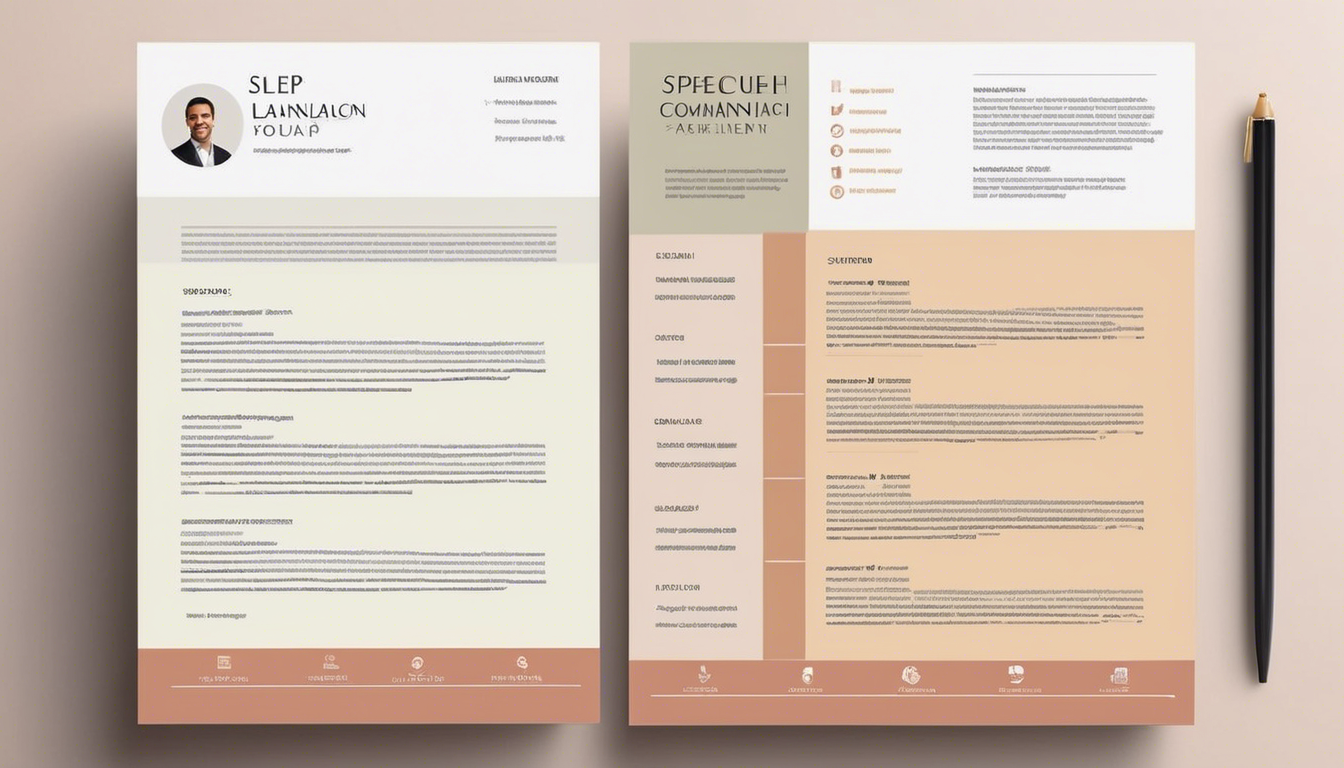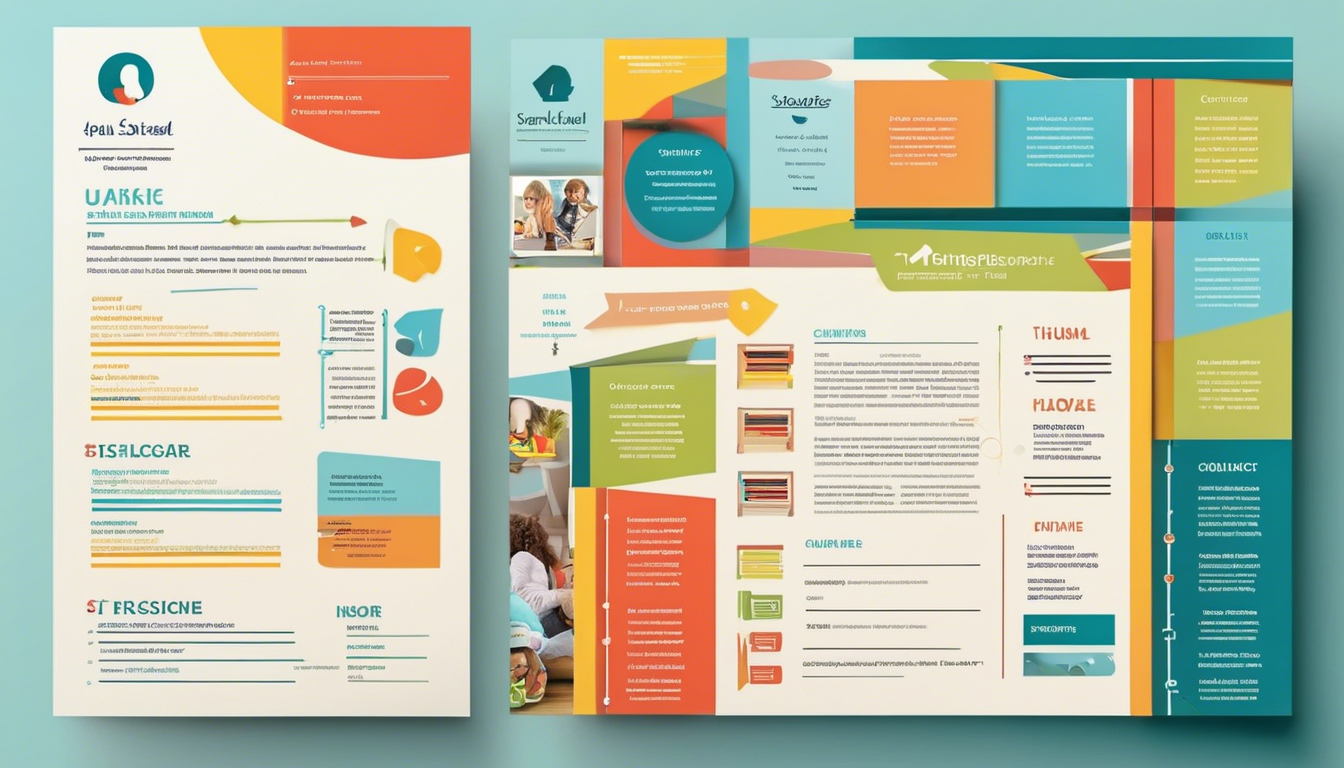In today's competitive job market, having a well-crafted resume is essential for speech-language pathologists (SLPs) looking to secure their dream positions. A strong resume not only showcases your qualifications and experiences but also demonstrates your ability to communicate effectively – a crucial skill in the field of speech-language pathology. This comprehensive guide will walk you through the process of creating an outstanding SLP resume, from understanding the key components to avoiding common pitfalls.
Also Read:

Introduction to SLP Resumes
Speech-language pathologists play a vital role in helping individuals of all ages overcome communication disorders and improve their quality of life. As an SLP, your resume is often the first impression you make on potential employers, making it a critical tool in your job search arsenal.
Importance of a Strong Resume for SLP Positions
A well-crafted resume can set you apart from other candidates and increase your chances of landing an interview. It serves as a marketing document that highlights your unique skills, experiences, and qualifications that make you the ideal candidate for the position. In the competitive field of speech-language pathology, where positions may receive numerous applications, a strong resume can be the difference between getting called for an interview and being overlooked.
Overview of the SLP Role and Responsibilities
Before diving into the specifics of resume writing, it's important to understand the scope of an SLP's role. Speech-language pathologists are healthcare professionals who diagnose, treat, and help prevent communication and swallowing disorders in patients of all ages. Their responsibilities typically include:
- Evaluating patients' speech, language, cognitive-communication, and swallowing abilities
- Developing and implementing treatment plans
- Collaborating with other healthcare professionals and educators
- Providing counseling to patients and their families
- Maintaining accurate records and progress reports
- Staying current with the latest research and treatment techniques
With these responsibilities in mind, your resume should effectively communicate your ability to perform these tasks and showcase your expertise in the field.
Key Components of an SLP Resume
A well-structured SLP resume should include several essential components that highlight your qualifications and experiences. Let's explore each of these elements in detail.
Contact Information
Your contact information should be prominently displayed at the top of your resume. Include your full name, professional title (e.g., "Speech-Language Pathologist"), phone number, email address, and location (city and state). If you have a professional website or LinkedIn profile, you may include these as well.
Objective Statement
While not always necessary, an objective statement can be beneficial, especially for entry-level SLPs or those changing specialties. This brief statement should concisely express your career goals and what you hope to bring to the position. For example:
"Dedicated and compassionate Speech-Language Pathologist seeking a position in pediatric care to utilize my expertise in early intervention and language development while contributing to a collaborative healthcare team."
Education and Certifications
Your educational background is crucial for SLP positions, as the field requires specific degrees and certifications.
Relevant Degrees
List your degrees in reverse chronological order, starting with the most recent. Include the following information:
- Degree name (e.g., Master of Science in Speech-Language Pathology)
- Institution name and location
- Graduation date (or expected graduation date)
- GPA (if it's 3.5 or higher)
- Relevant coursework or thesis topics (optional)
Licenses and Certifications
Include any relevant licenses and certifications, such as:
- Certificate of Clinical Competence in Speech-Language Pathology (CCC-SLP) from the American Speech-Language-Hearing Association (ASHA)
- State licensure information
- Specialized certifications (e.g., Lee Silverman Voice Treatment, PROMPT)
Clinical Experience
Your clinical experience is one of the most important sections of your SLP resume. It demonstrates your practical skills and hands-on experience in the field.
Internships and Practicum
For recent graduates or those with limited work experience, include details about your clinical practicum and internships. Provide information such as:
- Facility name and location
- Dates of internship or practicum
- Population served (e.g., pediatric, geriatric)
- Types of disorders treated
- Key responsibilities and achievements
Work Experience
List your professional experience in reverse chronological order, including:
- Job title
- Employer name and location
- Dates of employment
- Key responsibilities and achievements
- Quantifiable results or improvements you made
When describing your experiences, use action verbs and focus on your accomplishments rather than just listing duties.
Skills Section
A well-crafted skills section can quickly communicate your expertise to potential employers.
Important SLP Skills
Highlight both hard and soft skills relevant to speech-language pathology, such as:
- Diagnostic assessment
- Treatment planning
- Patient education
- Interpersonal communication
- Cultural competence
- Collaboration
Technical Skills
Include any technical skills specific to the field, such as:
- Proficiency in augmentative and alternative communication (AAC) devices
- Experience with electronic medical records (EMR) systems
- Familiarity with speech analysis software
Professional Development
Demonstrating your commitment to ongoing learning and professional growth can set you apart from other candidates.
Workshops and Conferences
List relevant workshops, conferences, or seminars you've attended, including:
- Event name
- Date and location
- Any presentations or posters you contributed
Continuing Education
Highlight any continuing education courses or additional training you've completed to stay current in the field.

Resume Formats for SLPs
Choosing the right resume format can help you effectively present your qualifications and experiences. There are three main formats to consider:
Traditional Reverse Chronological Format
This is the most common and widely accepted format. It lists your work experience in reverse chronological order, starting with your most recent position. This format is ideal for SLPs with a consistent work history in the field and those applying for positions that closely match their recent experience.
Pros:
- Easy for employers to read and understand
- Highlights career progression
- Preferred by many hiring managers and applicant tracking systems (ATS)
Cons:
- May not be ideal for those with employment gaps or career changes
Functional Resume Format
A functional resume focuses on your skills and abilities rather than your chronological work history. This format groups your experiences under skill categories, emphasizing your qualifications over your work timeline.
Pros:
- Highlights transferable skills
- Can be effective for career changers or those with limited experience in speech-language pathology
- Useful for hiding employment gaps
Cons:
- May raise red flags with some employers who prefer to see a clear work history
- Can be more challenging for ATS to parse
Combination Resume Format
This format combines elements of both chronological and functional resumes. It typically begins with a skills summary or highlights section, followed by a reverse-chronological work history.
Pros:
- Showcases both skills and work experience
- Allows for flexibility in presenting your qualifications
- Can be effective for experienced SLPs with diverse skill sets
Cons:
- Can be longer than other formats
- May be redundant if not carefully crafted
Crafting a Stellar SLP Resume with TalenCat CV Maker
For Speech-Language Pathologists (SLPs) looking to create a standout resume, TalenCat CV Maker is an excellent tool to showcase your skills and experience. This user-friendly platform offers specialized templates and AI-powered assistance to help you build a professional SLP resume in no time.
Here's a step-by-step guide to creating your SLP resume using TalenCat CV Maker:
Step 1: After logging in, click the + Create Resume button in the top right corner to start your SLP resume.

Step 2: Name your resume (e.g., "SLP Professional Resume") and choose whether to start from scratch or use a pre-filled example.

Step 3: Use the intuitive editor to input your SLP-specific information. The right panel will show a real-time preview of your resume.

Step 4: Leverage TalenCat's AI-powered features to enhance your SLP resume. The platform can suggest relevant skills, achievements, and industry-specific language to make your resume stand out.

Once you've completed your SLP resume, you can easily export it as a PDF or image file. TalenCat CV Maker also offers an online sharing feature, allowing you to generate a shareable link for your resume – perfect for quickly sending to potential employers or colleagues in the speech-language pathology field.
With TalenCat CV Maker, creating a professional and impactful SLP resume has never been easier. Start building your career-boosting resume today!
Resume Writing Tips for SLPs
Tailoring Your Resume for Each Job Application
One of the most effective strategies for improving your chances of landing an interview is to tailor your resume for each position you apply to. This involves:
- Carefully reading the job description and identifying key requirements.
- Highlighting your experiences and skills that directly match those requirements.
- Using similar language and keywords from the job posting in your resume.
- Adjusting your objective statement or summary to align with the specific position.
By customizing your resume, you demonstrate to employers that you've taken the time to understand their needs and are a good fit for the role.
Using Action Verbs and Quantifiable Achievements
To make your resume more impactful, use strong action verbs to describe your experiences and achievements. For example:
- "Developed and implemented individualized treatment plans for 30+ patients weekly."
- "Collaborated with multidisciplinary team to improve patient outcomes by 25%."
- "Conducted comprehensive evaluations for 100+ pediatric patients annually."
Whenever possible, include quantifiable achievements to provide concrete evidence of your impact. This could include metrics such as:
- Number of patients treated.
- Improvement rates in patient outcomes.
- Percentage increase in clinic efficiency.
Common Mistakes to Avoid
Being aware of common resume pitfalls can help you create a more polished and professional document.
Overloading with Jargon
While it's important to demonstrate your knowledge of the field, avoid overloading your resume with excessive technical jargon. Strike a balance between showcasing your expertise and ensuring your resume is accessible to all members of the hiring team, who may not all be SLPs.
Neglecting Formatting
A well-formatted resume is easier to read and more likely to make a positive impression. Avoid common formatting mistakes such as:
- Inconsistent font sizes or styles.
- Cramped or overly sparse layouts.
- Excessive use of bold, italics, or underlining.
- Lack of white space.
Aim for a clean, professional look that guides the reader's eye through your qualifications.
Examples of SLP Resumes
To help you visualize how these components and tips come together, let's examine some examples of effective SLP resumes.
SLP Resume Example 1
Name: Sarah Johnson, M.S., CCC-SLP
Contact: [email protected] | (555) 123-4567 | Portland, OR
Objective: Dedicated Speech-Language Pathologist with 5+ years of experience seeking a position in a pediatric clinic to utilize my expertise in early intervention and language disorders.
Education:
Master of Science in Speech-Language Pathology
University of Oregon, Eugene, OR
Graduated: May 2016, GPA: 3.8
Bachelor of Arts in Communication Sciences and Disorders
Portland State University, Portland, OR
Graduated: May 2014, GPA: 3.7
Certifications:
- Certificate of Clinical Competence in Speech-Language Pathology (CCC-SLP), ASHA
- Oregon State Board of Examiners for Speech-Language Pathology and Audiology License
Clinical Experience:
Speech-Language Pathologist
Happy Kids Therapy Center, Portland, OR
June 2016 - Present
- Evaluate and treat 30+ pediatric patients weekly with various communication disorders.
- Develop and implement individualized treatment plans for children aged 2-12.
- Collaborate with occupational therapists and special educators to provide comprehensive care.
- Achieved 85% success rate in meeting therapy goals within projected timelines.
- Introduced AAC devices to non-verbal patients, resulting in improved communication for 90% of cases.
Skills:
- Pediatric speech and language disorders
- Early intervention techniques
- Augmentative and Alternative Communication (AAC)
- Parent education and counseling
- Electronic Medical Records (EMR) proficiency
- Fluent in Spanish
Professional Development:
- ASHA Convention, 2019 & 2021
- Hanen Centre's "It Takes Two to Talk" Certification, 2018
- PROMPT Level 1 Training, 2017
SLP Resume Example 2
Name: Michael Chen, M.A., CCC-SLP
Contact: [email protected] | (555) 987-6543 | Chicago, IL
Summary: Compassionate and results-driven Speech-Language Pathologist with 8 years of experience in acute care and rehabilitation settings. Specializing in adult neurogenic disorders and swallowing difficulties.
Education:
Master of Arts in Speech and Hearing Science
Northwestern University, Evanston, IL
Graduated: June 2013
Bachelor of Science in Psychology
University of Illinois at Urbana-Champaign, Champaign, IL
Graduated: May 2011
Certifications:
- Certificate of Clinical Competence in Speech-Language Pathology (CCC-SLP), ASHA
- Illinois Department of Financial and Professional Regulation License
- Lee Silverman Voice Treatment (LSVT) Certified Clinician
Professional Experience:
Lead Speech-Language Pathologist
Chicago General Hospital, Chicago, IL
September 2015 - Present
- Manage a caseload of 40-50 patients per week in acute care and inpatient rehabilitation.
- Conduct bedside and instrumental swallowing evaluations (FEES, VFSS).
- Develop and implement treatment plans for patients with TBI, stroke, and neurodegenerative diseases.
- Mentor and supervise 2-3 CF-SLPs annually.
- Initiated a dysphagia support group, improving patient satisfaction scores by 30%.
Speech-Language Pathologist
Midwest Rehabilitation Center, Oak Park, IL
July 2013 - August 2015
- Provided evaluation and treatment for adult patients with communication and swallowing disorders.
- Collaborated with interdisciplinary team to ensure comprehensive patient care.
- Achieved 75% discharge-to-home rate for patients under my care.
Skills:
- Dysphagia management
- Cognitive-linguistic rehabilitation
- Voice disorders treatment
- Tracheostomy and ventilator management
- FEES and VFSS interpretation
- Electronic documentation and EMR systems
Professional Development:
- ASHA Convention, 2018 & 2020
- McNeil Dysphagia Therapy Program Certification, 2019
- Fiberoptic Endoscopic Evaluation of Swallowing (FEES) Training, 2017
SLP Resume Example 3
Name: Emily Rodriguez, Ph.D., CCC-SLP
Contact: [email protected] | (555) 246-8135 | Miami, FL
Professional Summary: Bilingual (English/Spanish) Speech-Language Pathologist with 12+ years of experience and a Ph.D. in Communication Sciences and Disorders. Expertise in bilingual language development, assessment, and intervention.
Education:
Ph.D. in Communication Sciences and Disorders
University of Miami, Miami, FL
Graduated: May 2019
Dissertation: "Bilingual Language Development in Spanish-English Speaking Children with Language Disorders"
Master of Science in Speech-Language Pathology
Florida International University, Miami, FL
Graduated: June 2009
Bachelor of Arts in Linguistics
University of Florida, Gainesville, FL
Graduated: May 2007
Certifications:
- Certificate of Clinical Competence in Speech-Language Pathology (CCC-SLP), ASHA
- Florida Department of Health Speech-Language Pathology License
- Bilingual Extension Certification
Work Experience:
Clinical Associate Professor & Bilingual SLP
University of Miami, Department of Speech, Language, and Hearing Sciences
August 2019 - Present
- Teach graduate-level courses in bilingual assessment and intervention.
- Supervise clinical practicum for master's students in the university clinic.
- Conduct research on bilingual language development and disorders.
- Provide bilingual speech and language services to pediatric and adult clients.
- Developed a culturally and linguistically appropriate assessment protocol, increasing accurate diagnosis of language disorders in bilingual children by 40%.
Bilingual Speech-Language Pathologist
Miami Children's Hospital, Miami, FL
July 2009 - July 2019
- Evaluated and treated bilingual children with various communication disorders.
- Specialized in early intervention for Spanish-English speaking toddlers.
- Collaborated with multidisciplinary teams to provide comprehensive care.
- Implemented a parent education program, resulting in 85% improvement in home carryover of therapy techniques.
Skills:
- Bilingual (Spanish-English) assessment and intervention
- Cultural competence in healthcare
- Research design and implementation
- Grant writing and publication
- Public speaking and professional presentations
- Proficiency in SPSS and R statistical software
Professional Development:
- ASHA Convention, annually since 2010
- Bilingual Symposium, 2018 & 2020
- Multicultural Issues in Communication Sciences and Disorders Conference, 2017
Analysis of Successful SLP Resumes
After reviewing these sample resumes, we can identify several key elements that make them effective:
- Clear organization: Each resume is well-structured with distinct sections, making it easy for employers to find relevant information quickly.
- Tailored content: The resumes are tailored to specific areas of speech-language pathology (pediatrics, adult care, and bilingual services), highlighting relevant skills and experiences.
- Quantifiable achievements: Each resume includes specific, measurable accomplishments that demonstrate the candidate's impact in their roles.
- Professional development: All candidates show a commitment to ongoing learning through certifications, conferences, and additional training.
- Relevant skills: The skills sections are comprehensive and directly related to the SLP field, including both clinical and technical skills.
- Clear progression: For those with more experience, the resumes show a clear career progression and increasing responsibilities.
- Education and certifications: All necessary educational qualifications and certifications are prominently displayed.
- Concise language: The resumes use clear, concise language with strong action verbs to describe experiences and achievements.
By incorporating these elements into your own resume, you can create a compelling document that effectively showcases your qualifications as an SLP.
Resources for SLP Resume Writing
To further assist you in crafting your SLP resume, consider utilizing the following resources:
Online Resume Builders
Several online platforms offer resume-building tools that can help you create a professional-looking resume tailored to your needs.
Templates and Samples
Look for templates and samples specifically designed for speech-language pathologists to guide your formatting and content choices.
Professional Organizations and Websites
Organizations such as the American Speech-Language-Hearing Association (ASHA) provide resources, guidelines, and support for SLPs, including tips for resume writing.
Conclusion
Recap of Key Points
Creating a strong resume is essential for speech-language pathologists seeking to stand out in a competitive job market. By understanding the key components, tailoring your content, and avoiding common pitfalls, you can develop a compelling resume that effectively showcases your qualifications.
Encouragement to Revise and Perfect Your Resume
Take the time to revise and perfect your resume, ensuring it reflects your skills, experiences, and dedication to the field of speech-language pathology. A well-crafted resume can open doors to your dream job and set you on the path to a successful career.




